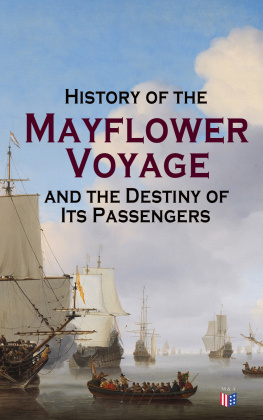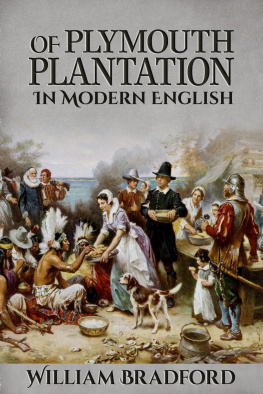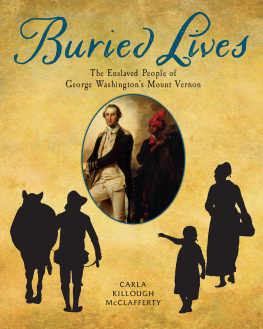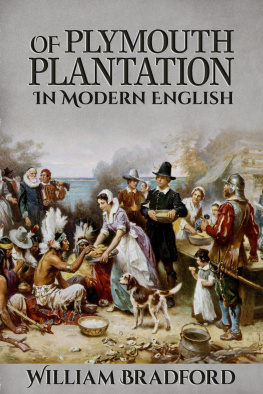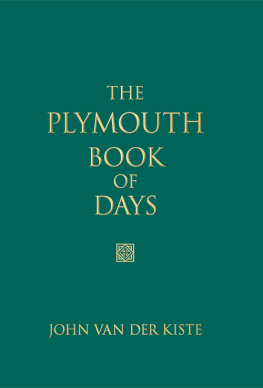Carla Gardina Pestana - The World of Plymouth Plantation
Here you can read online Carla Gardina Pestana - The World of Plymouth Plantation full text of the book (entire story) in english for free. Download pdf and epub, get meaning, cover and reviews about this ebook. publisher: Harvard University Press, genre: Romance novel. Description of the work, (preface) as well as reviews are available. Best literature library LitArk.com created for fans of good reading and offers a wide selection of genres:
Romance novel
Science fiction
Adventure
Detective
Science
History
Home and family
Prose
Art
Politics
Computer
Non-fiction
Religion
Business
Children
Humor
Choose a favorite category and find really read worthwhile books. Enjoy immersion in the world of imagination, feel the emotions of the characters or learn something new for yourself, make an fascinating discovery.

- Book:The World of Plymouth Plantation
- Author:
- Publisher:Harvard University Press
- Genre:
- Rating:3 / 5
- Favourites:Add to favourites
- Your mark:
- 60
- 1
- 2
- 3
- 4
- 5
The World of Plymouth Plantation: summary, description and annotation
We offer to read an annotation, description, summary or preface (depends on what the author of the book "The World of Plymouth Plantation" wrote himself). If you haven't found the necessary information about the book — write in the comments, we will try to find it.
The World of Plymouth Plantation — read online for free the complete book (whole text) full work
Below is the text of the book, divided by pages. System saving the place of the last page read, allows you to conveniently read the book "The World of Plymouth Plantation" online for free, without having to search again every time where you left off. Put a bookmark, and you can go to the page where you finished reading at any time.
Font size:
Interval:
Bookmark:
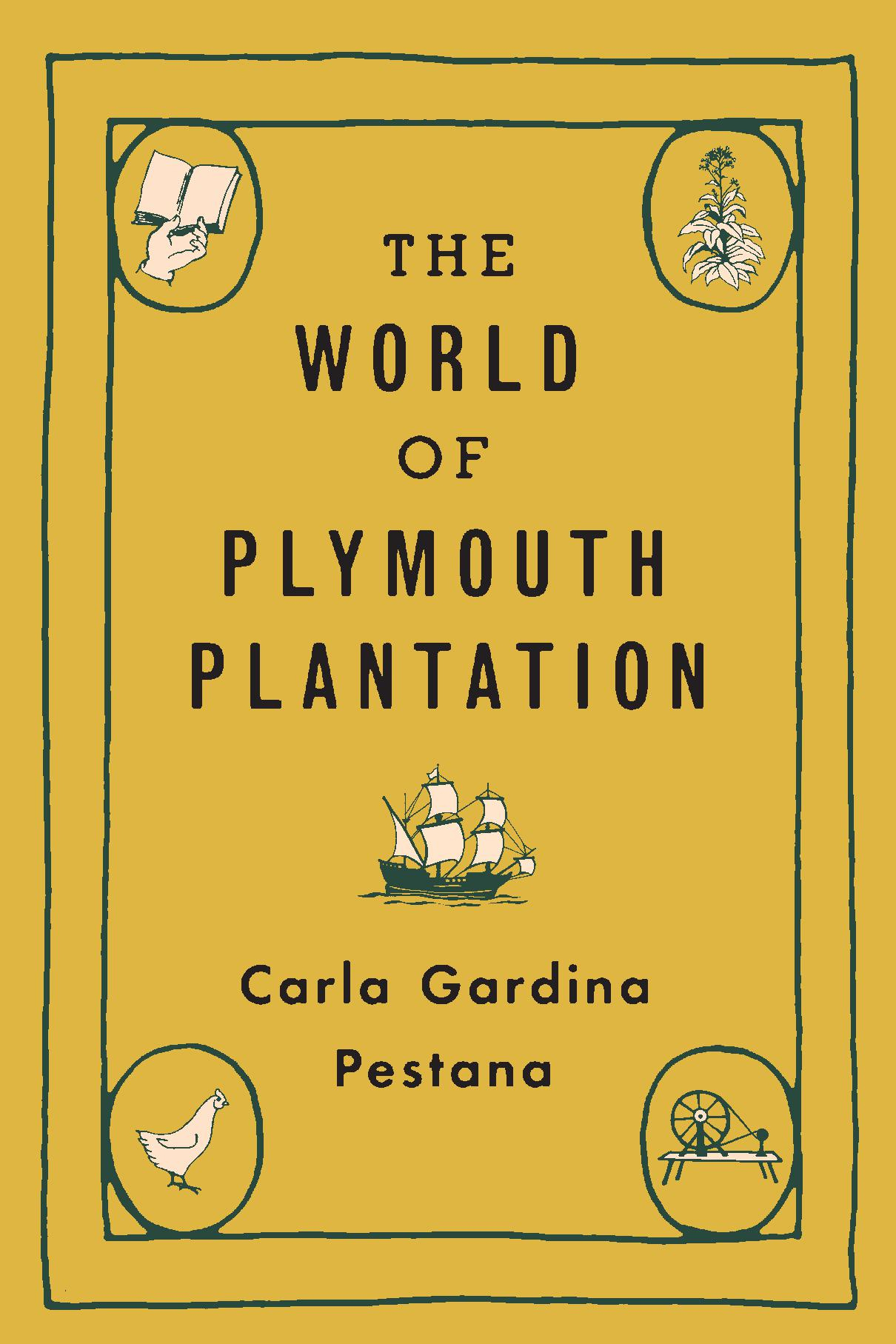
THE WORLD OF PLYMOUTH PLANTATION
Carla Gardina Pestana
THE BELKNAP PRESS OF HARVARD UNIVERSITY PRESS
CAMBRIDGE, MASSACHUSETTS LONDON, ENGLAND
2020
Copyright 2020 by the President and Fellows of Harvard College
All rights reserved
Cover design: Sam Potts
978-0-674-23851-0 (cloth)
978-0-674-25080-2 (EPUB)
978-0-674-25081-9 (MOBI)
978-0-674-25082-6 (PDF)
Maps copyright 2020 by Carla Gardina Pestana
The Library of Congress has cataloged the printed edition as follows:
Names: Pestana, Carla Gardina, author.
Title: The world of Plymouth Plantation / Carla Gardina Pestana.
Description: Cambridge, Massachusetts : The Belknap Press of Harvard University Press, 2020. | Includes bibliographical references and index.
Identifiers: LCCN 2020003452 | ISBN 9780674238510 (cloth)
Subjects: LCSH: Pilgrims (New Plymouth Colony) | MassachusettsHistoryNew Plymouth, 16201691. | MassachusettsSocial life and customsTo 1775. | MassachusettsRelations.
Classification: LCC F68 .P395 2020 | DDC 974.4/02dc23
LC record available at https://lccn.loc.gov/2020003452
To my history teachers, beginning with Ruby Marquis at Ranchito Elementary and culminating in Gary Nash and Joyce Appleby at UCLA.
Quotations from original sources have been silently modernized. Names of people and places generally reflect usage in the original sources. Dates have been treated as if the new year began on 1 January instead of 25 March, the date the English considered the start of the new year in the 1600s.
Americans know their Plymouth Plantation history. Plymouth and its Pilgrims may be more familiar than the mystery of the lost colony of Roanoke or the legend of Pocahontas rescuing John Smith. Knowledge of Plymouths past arises in part from the national holiday that commemorates the 1621 Plymouth harvest celebration widely known as the first Thanksgiving. Popular images of the holiday celebrate intercultural harmony, with Indians and settlers sharing a meal. Americans also know of Squanto, the interpreter and friend to Plymouth and the star of numerous childrens books. Most American history textbooks include a section on the founding of Plymouth Plantation and highlight the Mayflower Compact, an agreement signed on board the ship that carried the first settlers, one that purportedly established self-government among the men of the new settlement. American genealogists consider discovery of an ancestor who was on the Mayflower akin to winning the lottery. Tourists visiting Plymouth have, since the eighteenth century, gazed upon a rock designated many decades after the 1620 landing as the site where the first settlers stepped ashore. For the last seventy years, those tourists have ventured south of town to a living history museum, Plimoth Plantation. There they visit a highly conscientious historical recreation of the village, complete with costumed actors portraying individuals present in 1627. Whether in school, in popular art, or elsewhere, Americans know their Plymouth.
Yet, how well do we really know Plymouth? These particular moments of Plymouths history appear more like fragments of a still life than pieces of a historical narrative. As originally created, Plymouths vignettes serve as part of the United States origin story: the Mayflower Compact laid the foundation for American democracy; the religious piety and sacrifice of the settlers portended a later commitment to religious freedom. How did forty-one men signing a shipboard civil combination (as they called the agreement) lead to the American Revolution? How did their desire to practice their religion open the way to the First Amendments prohibition on a religious establishment? Those who repeat the descriptions of these moments do so without tracing the unfolding history from 1620 to the revolutionary era, and Plymouths own later history is little known. Each Plymouth imageSquanto, the Mayflower Compactis as isolated as a tourists snapshot, floating free. Today most of us see the plantation not as a real place in which people lived, worked, and died but only as a symbol of large, abstract concepts.
Fortunately, much more can be understood about Plymouth beyond this handful of well-known incidents. Those who participated in its first years described in their own words the world in which they lived. Two published narratives recounting events survive: A Relation or Journall (published in 1622) and Good Newes from New-England (1624). A number of different men contributed to writing A Relation, which strung together detailed descriptions of various events. Sent back by ship and printed in London, it appeared without any authors named; G. Mourt, who had not been in Plymouth, signed a preface written in London, and the little volume came to be known somewhat misleadingly as Mourts Relation. The twenty-seven-year-old Edward Winslowwho probably also contributed to A Relationpenned (and signed) Good Newes. At the end of the decade, William Bradford began writing a history that is today known as Of Plimoth Plantation. When he first took up his pen, he described events only up until the time of the landing; later, he returned to the project, continuing his account to chronicle life in Plymouth through its first two decades. Although it remained unpublished for centuries, Bradfords history informed the writings of others because the original handwritten document circulated. Bradfords manuscript was especially important for his nephew Nathaniel Morton, who in his New-England Memorial (published in 1669) spread information gleaned from Bradford to a wider audience. A century and more later, readers of these books pulled out particular storiesof the signing of a governance agreement, of the meeting with Squanto (known more often in the original sources and therefore in later chapters here as Tisquantum), and of a multiday fall gathering celebrating a first successful harvest. Yet these famous tales represent a selection out of long and detailed narratives that tell many stories.
More than a century passed before the people of Plymouth began to promote their history as a significant founding moment. Interestingly, the rockwhich is the only commemorative touchstone without any direct link to early writingsgained prominence first. In 1742, Plymouth residents trying to determine the landing site hit upon the rock with the assistance of an elderly inhabitant. Amid a rising interest in local history, Plymouth leaders in 1769 organized a Forefathers Day. In addition to recreating the landing, the celebration included speeches, each of them extolling the importance of Plymouth. Over the decades that followed, these speecheswhich were often publishedcontributed to the belief in Plymouths significance. Invariably speakers extolling Plymouth after the Revolution linked its early history to the eventual creation of the United States. In these accounts, the Mayflower Compact held a key role; the agreement was depicted as establishing democratic principles of broad participation and community cooperation. Save for the improbably placed rock, all the well-known Plymouth scenes emerged directly from writings penned by participants, which were selected for their edifying lessons and repeated regularly.
Plymouth gained a place in our national mythology because eighteenth-century New Englandersmany of them descendants of the first colonistssought to promote the region as the source of American values. Their efforts began even before the American Revolution, but expanded in the years after independence. Plymouths advocates elevated it over other settlements in New England for a number of reasons: it was first, certainly; but Plymouth also escaped association with the worst of local history. Plymouth executed neither religious radicals (as the Massachusetts government did with four Quakers) nor witches (as the jurisdictions of both Massachusetts and Connecticut did, Massachusetts most infamously in Salem in 1692). Plymouth appealed because it could represent a heroic past in which valiant settlers faced and overcame their fears in a new land, and because it had no taint of religious intolerance. Those New England boosters who promoted Plymouth found in it a perfect foil for Virginia, with its story of Princess Pocahontass rescue of John Smith. That southern colony had in fact been first among the thirteen that initially formed the United States, and Virginians were promoting their own early history in a bid to claim the status of most significant origin moment.
Font size:
Interval:
Bookmark:
Similar books «The World of Plymouth Plantation»
Look at similar books to The World of Plymouth Plantation. We have selected literature similar in name and meaning in the hope of providing readers with more options to find new, interesting, not yet read works.
Discussion, reviews of the book The World of Plymouth Plantation and just readers' own opinions. Leave your comments, write what you think about the work, its meaning or the main characters. Specify what exactly you liked and what you didn't like, and why you think so.

